Posted in Collaboration
March 26, 2015
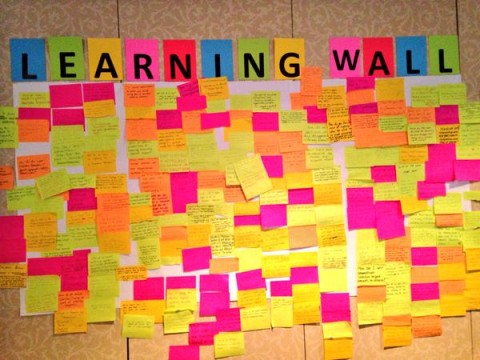
Just returning from the Champions for Change gathering in Washington, DC hosted by the Tamarack Institute and the Collective Impact Forum. I was in attendance with a couple of others from the Food Solutions New England Network Team to learn more about people’s experiences with creating and developing a “backbone” function in their “collective impact” efforts, and also had the opportunity to do a couple of skills sessions around IISC’s “Dimensions of Collaborative Success” framework from Facilitative Leadership for Social Change. Read More
March 16, 2015
I’ve long said that the ways in which work and organizational life are changing should be advantageous to those of us committed to social movements. Our organizational imperatives should never supersede our movement’s imperative. We should be willingly able to discard any organizational structure that does not serve our ultimate purpose. Read More
February 20, 2015
Important considerations for collaborative social change work: What are considered “legitimate” ways of knowing and doing? Why? What does this allow? What doesn’t it allow?
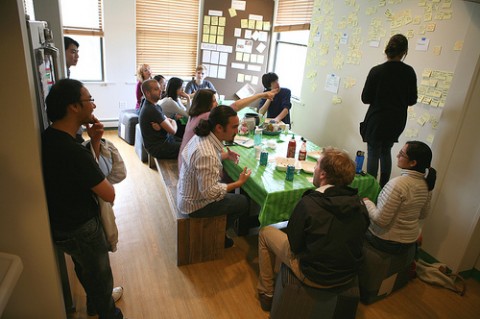
Photo by Juhansonin
I’m always interested to see diverse cognitive styles and preferences show up in the collaborative processes we help to design and facilitate at IISC. A classic difference is between those who bend more towards the analytical side of things and those who prefer to lead with intuition. This, of course, paints too stark of a dichotomy of what most people present overall, and context can often be a determinant in what people lead with. Nonetheless there are undeniable tensions that arise within groups about what constitutes “rigor” and “right method” for deriving what might be considered strategic insights. I would say that in many more “mainstream” (one might say “professional”) settings, it is often analysis and deference to some kind of “expert “that has a better chance of winning the day. And so I’ve been interested to come across a few resources that talk about and validate the place of intuition and iterative group visualization in coming up with good answers.
In a piece that appeared in the Harvard Business Review, Justin Fox writes about how instinct can beat analytical thinking. In particular, he lifts up the work of Gerd Gigerenzer from the Max Planck Institute for Human Development in Berlin, Germany. Gigerenzer’s research suggests that rational, statistical, analytical approaches work well in situations where one is able to calculate risk. The trouble, however, is that in many situations, decisions are made in considerable uncertainty, where risk and consequence are unknown because everything is quite dynamic. Read More
February 19, 2015
Appreciating our colleague, Maureen White, for bringing our attention to recent research on smart teams. She highlighted a couple of things when she shared the articles, and I thought it important to share them with you.
The smartest teams were distinguished by three characteristics:
- Their members contributed more equally to the team’s discussions, rather than letting one or two people dominate the group.
- Their members scored higher on a test called Reading the Mind in the Eyes, which measures how well people can read complex emotional states from images of faces with only the eyes visible.
- Teams with more women outperformed teams with more men. Indeed, it appeared that it was not “diversity” (having equal numbers of men and women) that mattered for a team’s intelligence, but simply having more women.
Read More
February 18, 2015
We are living through the early days of the next civil rights movement. It is an exhilarating moment. No, it does not read like the linear narrative of our history books and movement building manuals. That is because books and manuals are usually written with the benefit of hindsight to weave a story together. This movement is emergent and it takes a sharp eye to understand it.
Tip #1: You and Oprah should let go of old definitions of leadership
Jodie Tonita of the Social Transformation Project has recently published one of the sharpest articulations of leadership and how it works in the #BlackLivesMatter movement. I urge you to read it in its entirety.
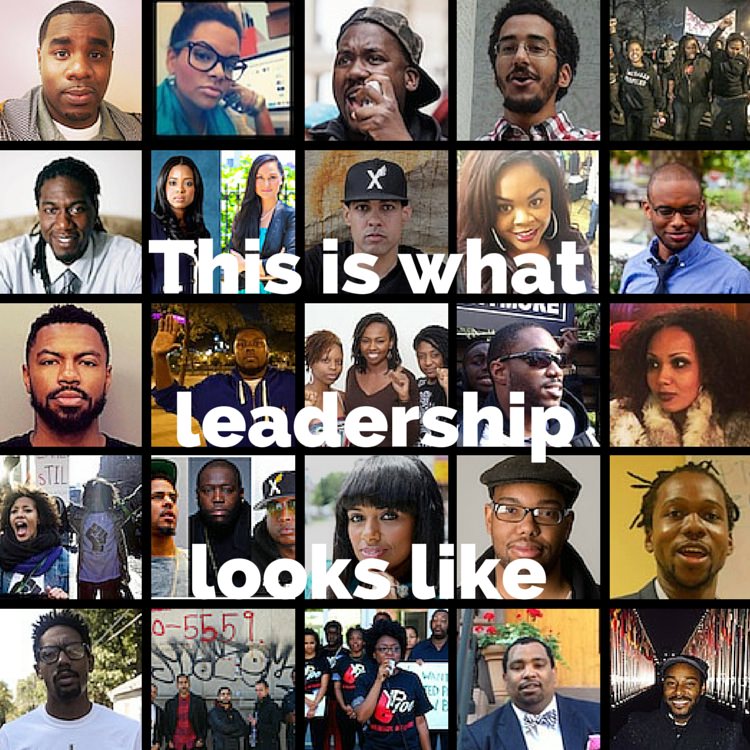
Names, bios, and more at revolt.tv.
Read More
January 29, 2015
“Our world is, to a very real extent, based on dialogue. Every action taken that involves more than one person arises from conversation that generates, coordinates and reflects those actions. Those actions have impact. If our human world is based on conversations, then the work of creating and supporting those conversations is central to shaping a world that works. Designing and conducting meetings and other groups sessions well is vital to determining our common future.”
– Group Works
 Just recently in work with a national network, we turned the corner to start creating a structure to channel the alignment it has achieved around core goals for system change and ultimately to realize “collective impact” in a particular domain. As we were kicking off some of the early discussions, someone asked what I thought were the keys to creating a successful network structure. That’s a huge question that merits a complex answer, and I’ll admit that in reflecting on the dozen or so large scale change efforts I’ve been a part of the past 7 or 8 years, the first thing that came to mind was – “really good facilitation.”
Just recently in work with a national network, we turned the corner to start creating a structure to channel the alignment it has achieved around core goals for system change and ultimately to realize “collective impact” in a particular domain. As we were kicking off some of the early discussions, someone asked what I thought were the keys to creating a successful network structure. That’s a huge question that merits a complex answer, and I’ll admit that in reflecting on the dozen or so large scale change efforts I’ve been a part of the past 7 or 8 years, the first thing that came to mind was – “really good facilitation.”
Simplistic as this response may sound I was thinking of lessons learned from numerous efforts that no beautiful or well thought out network/collaborative structure stands up to a lack of strong facilitative capacity (skillset, mindset, and heartset). To be more nuanced, it is not just facilitation that ultimately came to mind, but what we at IISC call facilitative leadership.
For over 20 years, IISC has been teaching, preaching and practicing Facilitative Leadership (FL), and in many ways it seems that this approach has never been riper in light of the burgeoning call to collaborate and cooperate across boundaries of all kinds. At its base, FL is about creating and inspiring the conditions for self-organization so that people can successfully achieve a common (and often evolving) goal. The logical question that follows is, “How does one ‘create and inspire’ these conditions?” The answer is found in a variety of practices derived from successful group work and that have indeed shown promise across different networks and large scale change efforts to create solid foundations and momentum for social change. Among them are these: Read More
January 22, 2015
“If you bring the appropriate people together in constructive ways with good information, they will create authentic visions and strategies for addressing the shared concerns of the organization and community.”
David Chrislip

In our work at IISC, we occasionally reference David Chrislip’s “collaborative premise” (see above) as a way of orienting people to some of the key components of effective collective and net work. Given our emphasis on effective stakeholder engagement and process design, we generally focus on the first two elements more so than the last around good information, which does not mean we think it doesn’t matter. In fact, recently I’ve been observing some interesting dynamics around the data conversation in various network building and collective impact projects that we support.
Invariably, it seems that there are those who are quite concerned about ensuring that a given collective effort has the “right data” and that people are being “rigorous” in their approach to problem/opportunity analysis and solution generation. While understanding the need to have and use good data, we also think that it’s important to ask the question – Data for what? People often say they want data to ensure that they are not making uninformed and overly subjective judgments. Understandable. Furthermore it is sensible to want to seek out a baseline to be able to measure progress as a change effort moves forward. This said, I see a number of pitfalls in what can sometimes become the drumbeat for data.
Read More
October 29, 2014
“Our success is built on partnership, sharing success and sharing credit.”
– Sec. Chuck Ross

“The mojo is in the motto.” With these words, Secretary of Agriculture Chuck Ross opened the doors and conversation on the fourth annual Vermont Farm to Plate Network convening last Thursday in Killington. Each of the past four years Secretary Ross has brought some critical words of encouragement and motivation to this fall convening, and by invoking the state motto – “Freedom and Unity” – at this year’s opening he seemed to hit the right chords at a critical moment in the evolution of the network.
In 2011, Farm to Plate launched to great excitement and some anxiety as it positioned itself as a cross-sector collaborative network to carry out a strategic plan to double local food production in Vermont in 10 years time, contributing to job and economic growth as well as food access in a state that sees high rates of poverty. Since then, as both Ellen Kahler of the Vermont Sustainable Jobs Fund (the backbone organization for Farm to Plate) observed and remarked through a plenary retrospective, it has managed to find its collaborative footing and grow significantly in numbers (more than 300 organizations strong). And importantly, it has seen real results in terms of direct, indirect and induced job growth resulting in 9,000 new jobs in the agricultural and food sector in Vermont. Furthermore, success is evident in individual members using network goals to inform and align their organizational goals. Read More
September 10, 2014

Photo by Guy Renard 25
My friend Joel Glanzberg is a constant source of provocation and insight. The way he sees the world, through a living systems and pattern-seeking lens, is not only refreshing but unnerving in that it is evident how simultaneously critical and rare his perspective is. Joel is great at helping me and others to see beyond objects and structures to underlying patterns and processes, and how these are what animate living systems. Read More
September 3, 2014
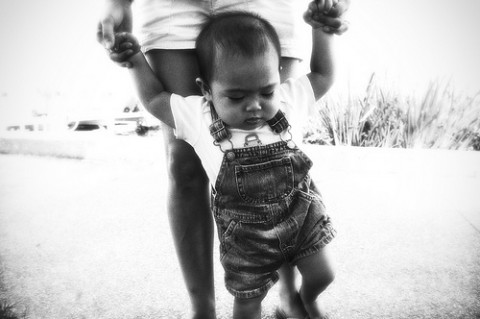
Photo by Tela Chhe
One mantra I have for working with groups is, “If you’ve seen one group, you’ve seen one group.” Part of the welcome and challenging nature of collaboration is that in each instance we are dealing with a unique organism or constellation of human beings coming together to get something done. As complex living systems, groups of people are not prone to simple “best practices” for getting them working in a prescribed way. There certainly are some “promising practices,” including what we teach at IISC in our Facilitative Leadership for Social Change courses. Still collaboration, including the practice of group facilitation, is a heuristic undertaking – an experience-based approach to problem solving, learning, and discovery that suggests solutions which are not guaranteed to be optimal. Read More
August 11, 2014

Photo by Synopia
A number of readings I’ve come across lately reference the important consideration of organizational structure and how it encourages or discourages collaboration. In a post from last week, I highlighted the book Reinventing Organizations by Frederic Laloux, which focuses on “evolutionary (Teal) organizations” that embrace an ethic of self-organization to facilitate more purpose-driven, holistic and responsible engagement on the part of organizational members. In order to encourage self-organization and intrinsic motivation, these entities adopt less formally hierarchical and fixed-role structures in favor of fluidity and networked leadership. According to Laloux, this brings more timeliness and relevance to the inner workings and responsiveness of these organizations. Read More
July 29, 2014
I just facilitated the 6th Creative Change Retreat at the Sundance Institute in Utah. The amazing experience leaves me grateful to my friends at the Opportunity Agenda for trusting me with the design and facilitation of such a significant convening.
Today more than ever I am convinced that the change we want to see in the world is a change that demands the evolution of consciousness and culture. As the artist and the activist come together – as they become one – we will be able to join into a different kind of intervention.
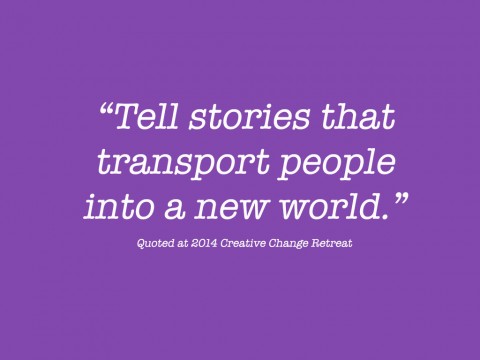 Read More
Read More

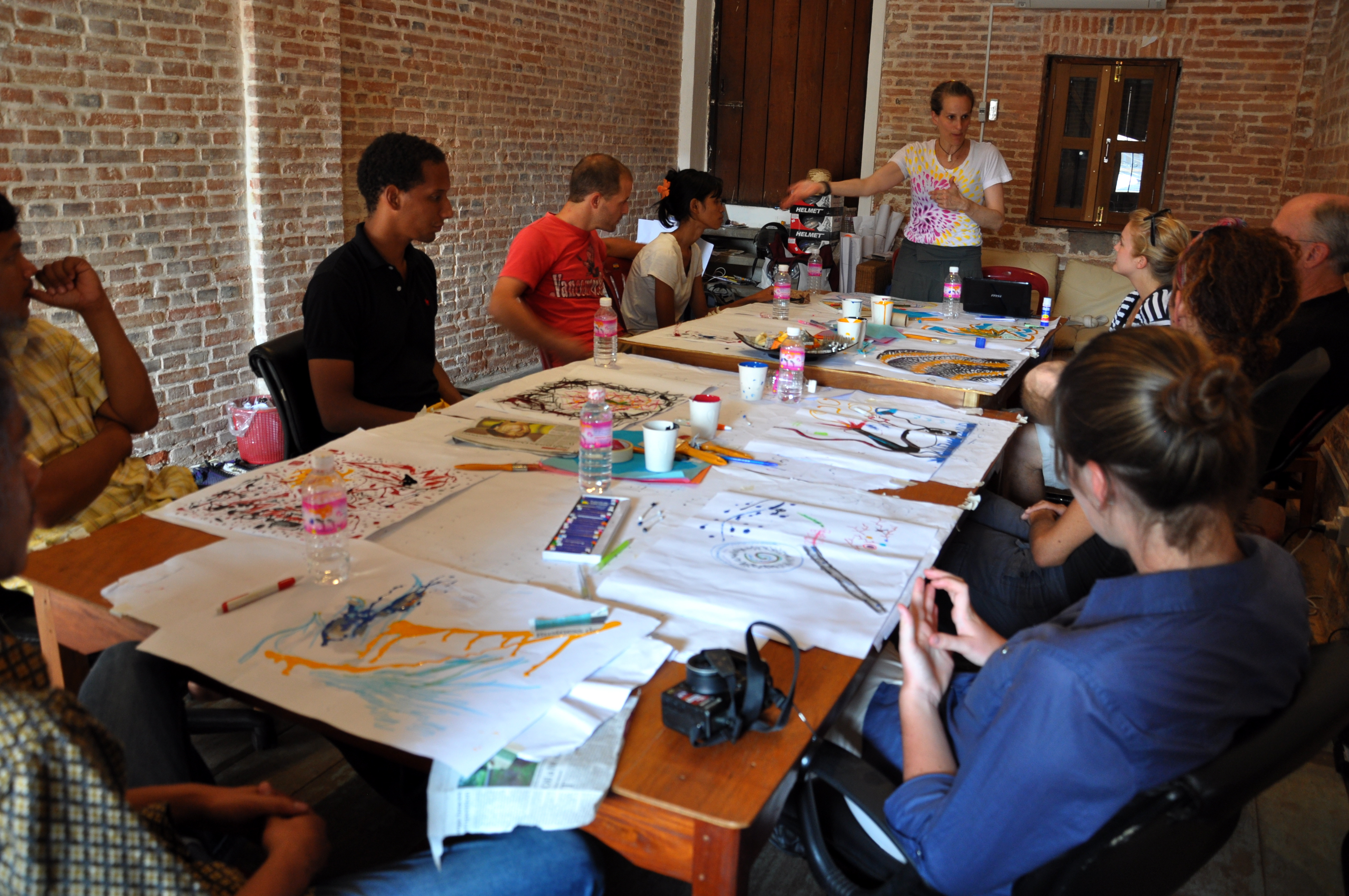


 Just recently in work with a national network, we turned the corner to start creating a structure to channel the alignment it has achieved around core goals for system change and ultimately to realize “collective impact” in a particular domain. As we were kicking off some of the early discussions, someone asked what I thought were the keys to creating a successful network structure. That’s a huge question that merits a complex answer, and I’ll admit that in reflecting on the dozen or so large scale change efforts I’ve been a part of the past 7 or 8 years, the first thing that came to mind was – “really good facilitation.”
Just recently in work with a national network, we turned the corner to start creating a structure to channel the alignment it has achieved around core goals for system change and ultimately to realize “collective impact” in a particular domain. As we were kicking off some of the early discussions, someone asked what I thought were the keys to creating a successful network structure. That’s a huge question that merits a complex answer, and I’ll admit that in reflecting on the dozen or so large scale change efforts I’ve been a part of the past 7 or 8 years, the first thing that came to mind was – “really good facilitation.”





